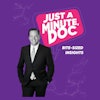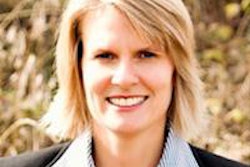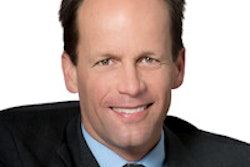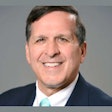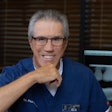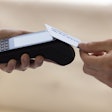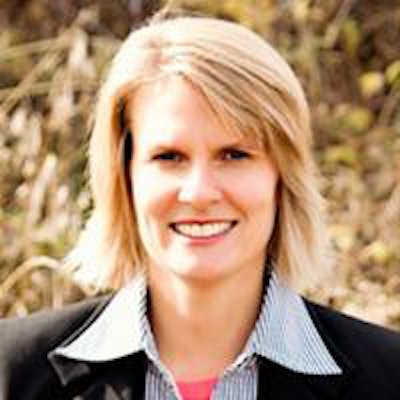
We are natural competitors. It's a survival instinct. Dental school demanded a competitive spirit, even more so if we specialized. How else would we have separated ourselves from the pack?
Yes, competitiveness gets us places. It pushes us beyond our original expectations. Competition shows us how to be better, and it often displays an unknown level of excellence. If we lose, we leave inspired to be as good as the person who beat us -- inspired to work harder.
 Lisa Knowles, DDS.
Lisa Knowles, DDS.If we win, we taste victory and savor the rush. It is addicting. The adrenaline hit powers us through adversity, beyond fears, and thrusts us upward onto new, unfathomable plateaus. We surge past our competition and attain unimaginable feats. We win. And doesn't that feel good?
"Sure, winning isn't everything. It's the only thing," said football coach Vince Lombardi. But is it? I have been in many situations where winning did not feel as good as I would have predicted. I won, but it was at someone else's expense, and I certainly did not score points for artistic expression or team congeniality.
This is a common error in dentistry. We fall back into our old dental school habits of winning when we should be thinking about influencing. We are so focused on winning that we miss the side stories taking place. We are unaware and truly blinded by the desire to win. Our "go to" styles that got us into dental school and helped us graduate are now not as useful with our teams and with our patients.
What does this lead to? Frustration! No matter what we do, we feel like we are not winning enough. We are not making enough money. We are not having enough things. We are not liked by enough people. With an overly competitive attitude, we set ourselves up for disaster. We can ruin our practices and ultimately our lives.
Need I even mention the elective wins we desire? We want the best house, the best car, the newest piece of equipment, the best kids, the best spouse, the best body. The list goes on and on -- if we let it.
Well, how far is too far?
Is your competitiveness a bit over the top? Consider these questions:
- Am I listening to others' opinions, or am I blind to their responses because I want to win?
- Do I have an "I don't care: It's my way or the highway" attitude?
- Do I have to have the last word?
- Do I have to be right?
- Do I interrupt conversations with my input?
- Am I beyond annoyed if patients do not take my advice?
- Do I limit my opportunities to receive feedback from others?
- Do I dislike team-building exercises if I lose?
- Do I shut down verbally or emotionally if I lose?
If 'yes' is a frequent response, it may be time to tone it down a notch. Not every scenario can be predicted, and some levels of competition are good. However, I watch dentists shut down their teams or patients very quickly by interrupting them (I am guilty, too). They have an inherent desire to be right, to demonstrate their ability to win the conversation. This type of communication is detrimental to the practice's long-term success because patients feel less involved in their health, and they feel intimidated by an overly aggressive conversation style. It takes absolute intentional focus to overcome this natural tendency.
“Our communication styles have to consider our ultimate goal: to educate and change behaviors.”
So what can we do? What if we decided to be our own best?
My kids go to a summer camp on the shores of Lake Michigan. The motto there is "my own self, at my very best, all the time." I think of this motto over and over again as my competitive mind races forward. When we are in our practices, winning cannot be the goal of a conversation. Influence is very different than winning. Our communication styles have to consider our ultimate goal: to educate and change behaviors.
How much do you like it when someone tells you what to do? I stop listening. I cannot even hear the rest of the sentence because I don't like to be told what to do. I like suggestions and ideas, but my stubborn independent thinking -- enhanced in dental school with expertise knowledge -- stops me from connecting with the person in front of me if they are going to tell me to do something. It's human nature, and we have to learn to communicate differently with one another to help change behaviors. Most people do not mean to sound competitive or insincere. The words simply come out with too much thrust or at the wrong time. Communication is so complex; it really is. To help understand communication styles, consider these questions before entering into a difficult conversation:
- Do I have to win this argument?
- What do I risk by winning this argument?
- Can I collaborate instead of compete in this situation?
We have been trained by our culture and by our media to be winners. Unfortunately, that makes it even harder to be the opposite -- the loser. Negative connotations of the word "loser" affect us. We can no longer simply lose. If we lose, we are losers; the language shift causes stress and anxiety for those not at the top winning. It becomes a personal strike against us to lose because this terminology is now a part of our culture.
In reality, we all win -- even if we lose. We gain knowledge and strength from all of our interactions and competitions. We cannot all win on a scoreboard, but we can win in being a human being. And I have to disagree with Vince Lombardi. Winning is not everything. Winning has become a fixation on not being a loser.
For me, winning is the culmination of hours, weeks, and months of preparation. It is the ultimate reward and motivator to be my own self, at my very best, all the time. I win for myself, and I still remain aware of better people, better procedures, and better ways to practice. I remain edgy, but I don't fall off the edge. With this type of attitude and balance, it is very hard to ruin a dental practice.
Lisa Knowles, DDS, is the founder and CEO of IntentionalDental Consulting. For more information, contact her at [email protected] or 517-331-3688. Visit her blog site at Beyond32Teeth.com or website at IntentionalDental.com.
The comments and observations expressed herein do not necessarily reflect the opinions of DrBicuspid.com, nor should they be construed as an endorsement or admonishment of any particular idea, vendor, or organization.

